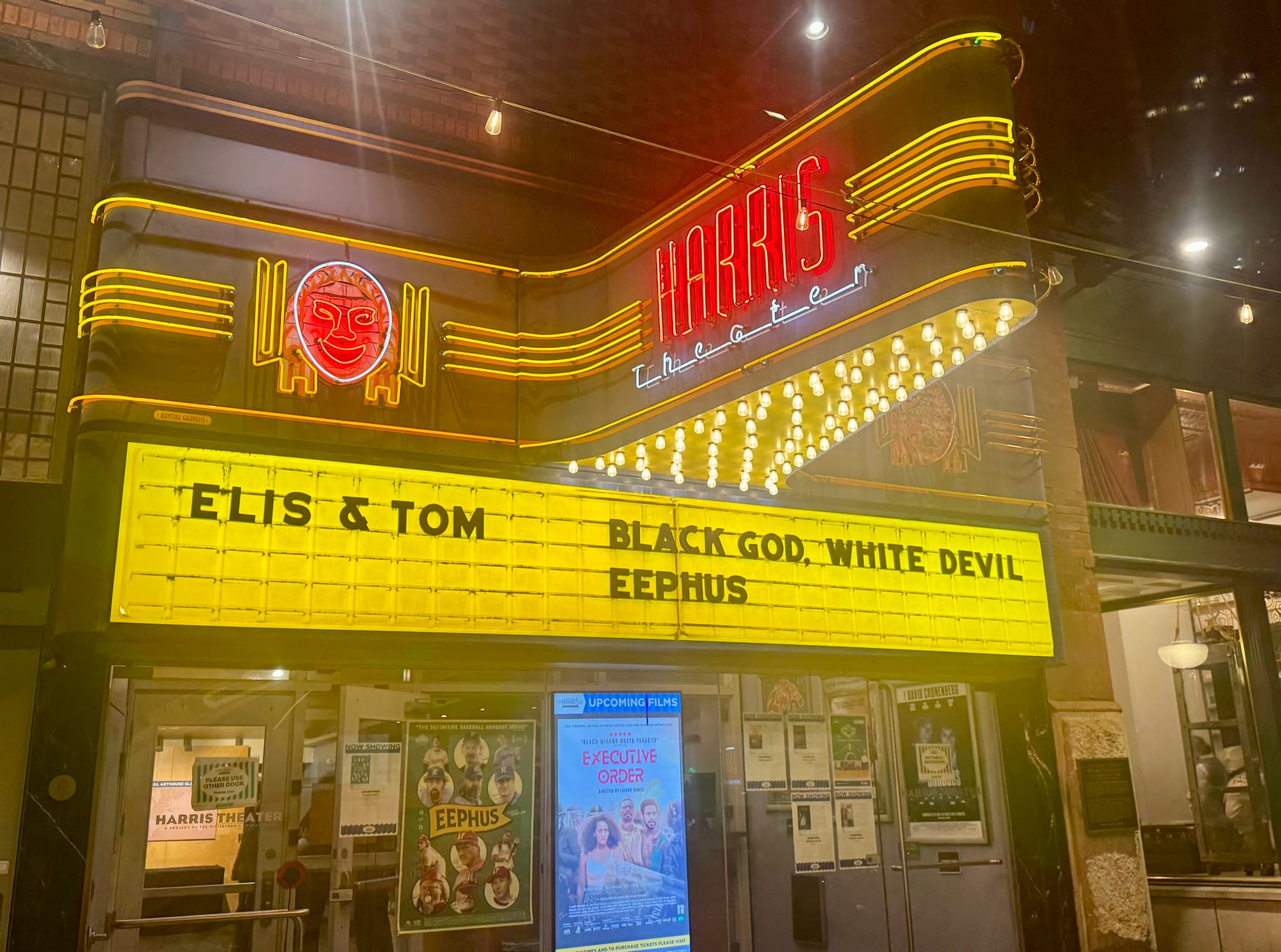PITTSBURGH, PA - When Harris Theater programming director Joe Morrision heard about the film I’m Still Here, he knew he had to get it shown at the Harris, an art house movie theater located in downtown Pittsburgh, which is owned by the non-profit Pittsburgh Cultural Trust.
“I really wanted to get I’m Still Here and when I found there was a big American distributor, I was, like, I have to get the film,” said Morrison.
The Brazilian film I'm Still Here, directed by Walter Salles, has taken American audiences by storm. It is the highest-grossing Brazilian film in the United States ever.
The movie about the disappearance of Brazilian Congressman Rubens Paiva in 1970 during the dictatorship has won rave reviews and currently holds a Rotten Tomatoes rating of 97%. The film focuses on the effect that his disappearance had on his wife and children. His wife, Eunice Paiva, spent 45 years searching for the answer to what happened.
(See Payday’s interview with top Brazilian film critic Flavia Guerra about the film)
A few months prior to the film coming to the United States, Morrison had begun discussing the possibility of having a Brazilian Film Festival with Arthur Alexander, the creative director of the Pittsburgh Cultural Trust, who was born and raised in the Brazilian state of Pará.
The Pittsburgh Cultural Trust is a non-profit that owns several major cultural and theater venues in downtown Pittsburgh. Through endowments and money it makes from the property it owns in a 14-block cultural district, it's able to support major artistic events.
One of the institutions it runs is the Harris Theater, a non-profit movie theater that often hosts 3 or 4 different independent, foreign, or art house films per week. In addition, it hosts a half-dozen film festivals a year including its marquee Three Arts Film Festival.
For Alexander, creative director of the Pittsburgh Cultural Trust, it was vital to have a Brazilian film festival in Pittsburgh, where the Brazilian population has grown to nearly 10,000 in the last decade.
“I've been living here in Pittsburgh for 10 years,” says Alexander. “And I think as someone who was born and raised in Brazil, I felt that it's so important for me to also expose this part of my identity as, like, a Brazilian. There's so much cool stuff about Brazil, like music, food, lots of different things.”
At first, when Morrison and Alexander discussed the possibility of having a Brazilian film festival in Pittsburgh, it seemed like an uphill struggle, but then I’m Still Here became a box office hit, first in Brazil last fall and then was nominated for several Oscars, winning “Best Foreign Feature.”
“We found out that I'm Still Here was just, like, gaining lots of popularity,” says Alexander. “And there was the possibility of coming to the US through a big distributor. And then finally, Joseph fought hard to really, like, screen I'm Still Here.”
In February, the Harris Theater was the first movie theater in Pittsburgh to show I’m Still Here, Eventually, it would show at 4 different movie theaters in Pittsburgh.
“Suddenly we did Im Still Here, and we had the biggest attendance of any theater showing it in the city of Pittsburgh, by far,” says Morrison. “We know we reached a lot of native Brazilians in the screenings. And so it gave us the boost we needed to get over the finish line for this festival.”
Morrison says the key to doing film festivals is to get community engagement and partnerships and that films showing at the Harris Theater allowed him to engage many in the community that he had not engaged with before.
“When somebody like [Alexander] says, I want to do a Brazilian film festival, because he's part of that community, I listen, and I'm like, ‘Yeah, that makes sense’,” says Morrison. “It might not make sense commercially on a piece of paper, but I know that the community will come out…so the gamble is trying to connect with those communities from a PR perspective or a marketing perspective.”
Pittsburgh’s first Brazilian Film Festival showcased five Brazilian films: Elis & Tom about the landmark album between Tom & Jobim, the 1964 classic Black God and White Devil, the 2020 sci-fi hit Executive Order, the documentary No More History Without Us about the Amazon, and my personal favorite Retratos Fantasmas (or Pictures of Ghost as translated into English).
Retratos Fantasmas is an edgy, experimental documentary by Kleber Mendonça Filho that documents the changing images and landmarks of the Northeastern Brazilian city of Recife. The film focuses, in particular, on how the social geography of the city changed as major movie theaters in the city closed.
The film ends with a focus on the importance of the last remaining grand cinema in Recife that is now a “cinema publico,” a non profit cinema. It ends by focusing on the importance of maintaining non-profit cinemas to maintain our cultural and community identity, something which the Harris Theater strives to do.
Joe Morrison, says that the support of the non-profit Pittsburgh Cultural Trust, has allowed the Harris Theater to do community building through events like the Brazilian Film Festival.
“Because we're not driven commercially, it allows us to be what we are, which is a community-driven theater,” says Morrison. “I always say that I am the programmer, but I'm just here to channel what Pittsburgh is telling me they want to see. And the festivals represent a lot of different communities that might not get to have a voice on screen without a festival.”
Morrison and Alexander hope to have the Brazilian Film Festival back next year. After the success of I’m Still Here and the Brazilian Film Festival at the Harris Theater, Morrison says he hopes to have more Brazilian films showing there.
“I'm gonna snap up any big Brazilian films I can get in the future. I'll put them on the screen,” says Morrison.
Donate to Help Us Cover the Brazilian community in Pittsburgh

